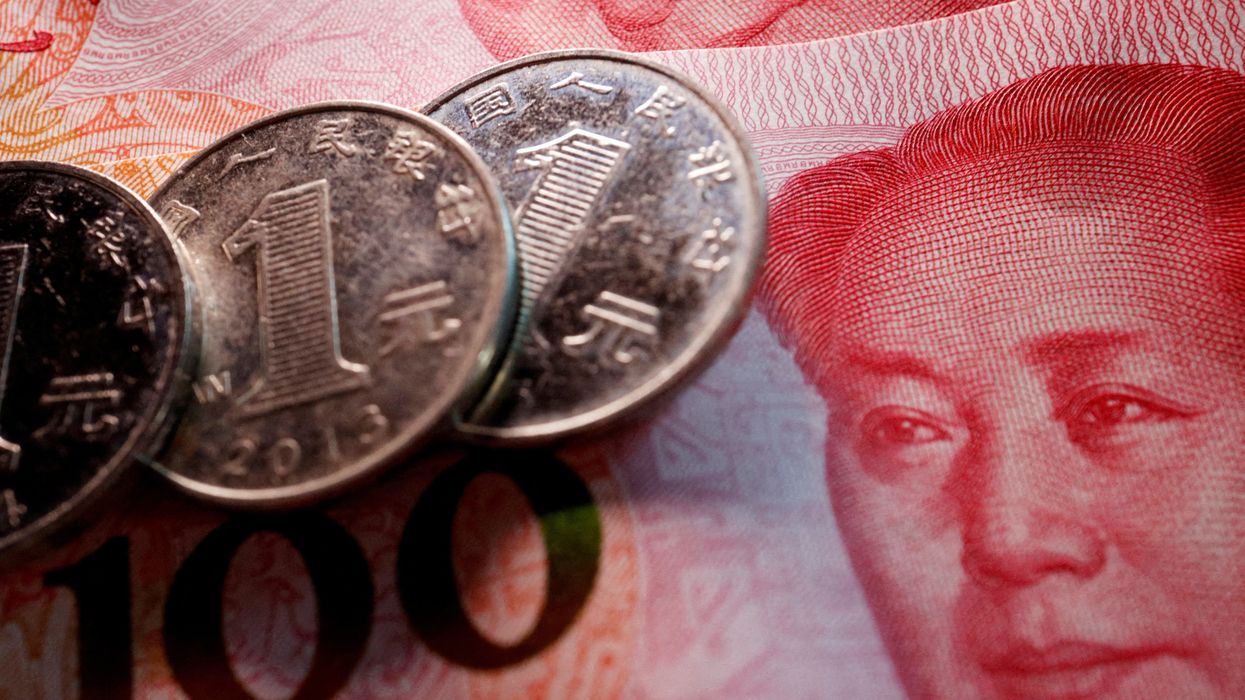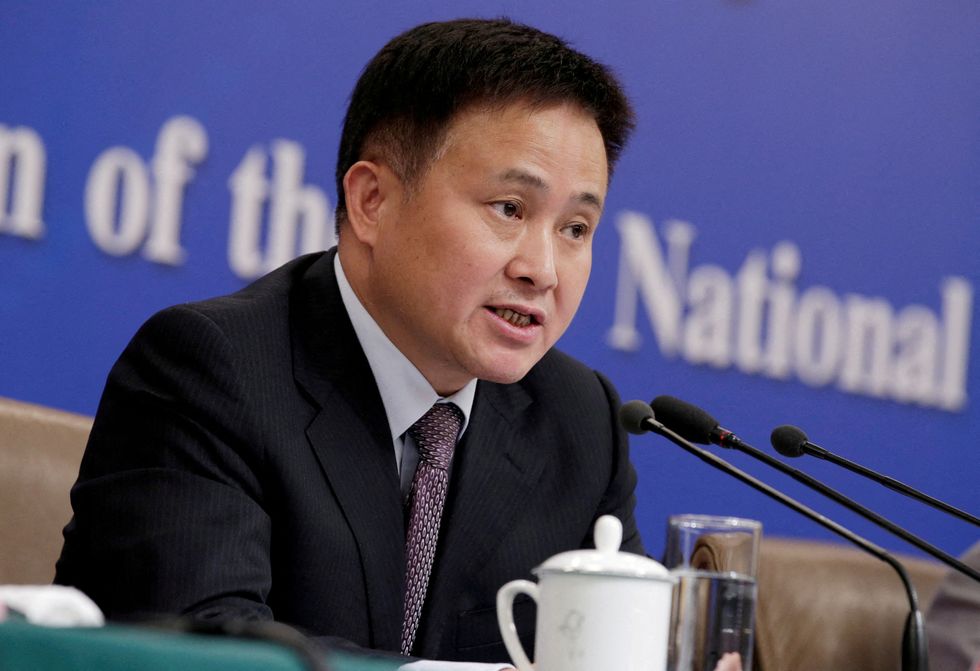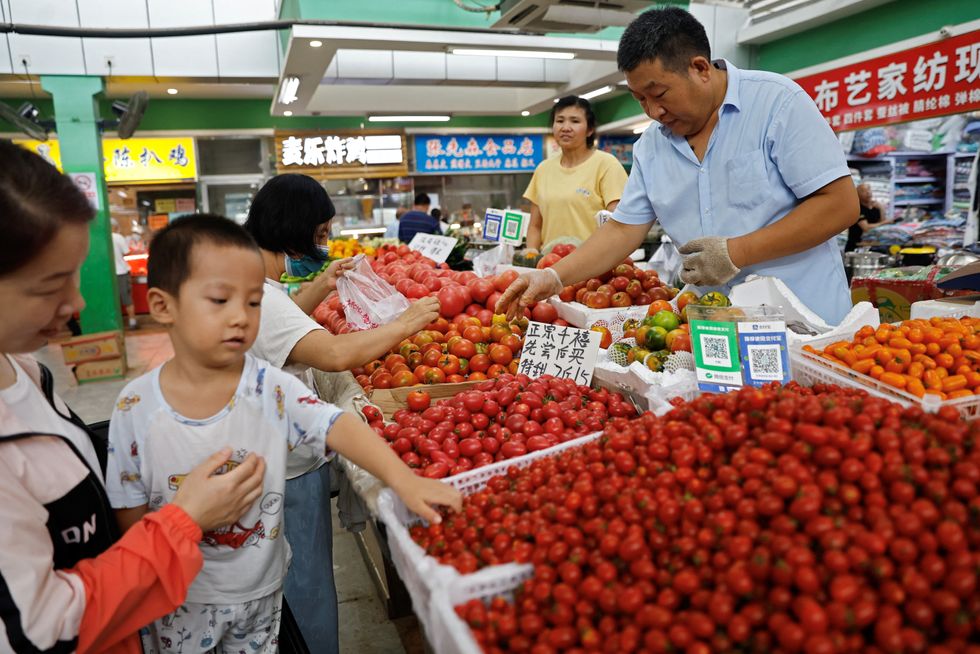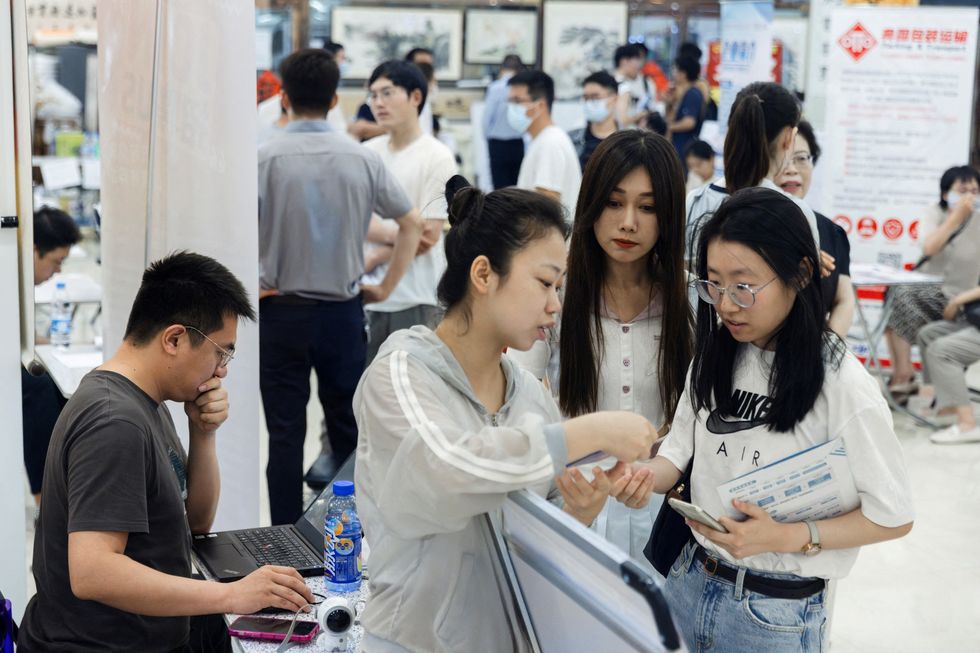
China’s economy has been left on the brink of collapse as Beijing steps in to take action to avoid financial turmoil.
The world’s second-largest economy has been forced to spring into action after prices continued to fall year-on-year.
The official consumer price index, a measure of inflation, fell by 0.3 per cent last month from a year earlier.
Slowing domestic spending and China’s post-Covid recovery have been identified as the major reasons behind it slipping into deflation.

The People’s Bank of China (PBoC), which is run by Xi Jinping’s ally Pan Gongsheng, is cutting interest rates in an attempt to encourage spending.
Economists had expected a more drastic intervention in a bid to produce a more immediate turnaround.
One-year loan prime rates have been cut from 3.55 per cent to 3.45 per cent.
The five-year loan prime rate, which is predominantly used for mortgages, remains fixed at 4.2 per cent.

Experts had expected both rates to face a 0.15 per cent reduction.
Julian Evans-Pritchard and Zichun Huang, economists at the consultancy Capital Economics, said: “The big picture is that the PBoC’s approach to monetary policy is of limited use in the current environment and won’t be enough, on its own at least, to put a floor beneath growth.
“Reviving demand would take much larger rate cuts, or regulatory measures to effectively restore confidence in the housing market.”
Beijing has been grappling with multiple economic issues following the coronavirus pandemic.
The property market reached a new low last week when real estate giant Evergrande filed for bankruptcy protection in the United States.

The company is still working on a multi-billion dollar deal with creditors.
The announcement came after Country Garden warned it could see a loss of up to £6billion for the first six months of the year.
China’s imports and exports have also fallen sharply in July amid weaker global demand.
However, despite Beijing opting to stop releasing official data, youth unemployment remains a key example of its economic slowdown.
China’s jobless rate for 16 to 24-year-olds in urban areas hit a record high of more than 20 per cent in June.
from GB News https://ift.tt/0INAebx

China’s economy has been left on the brink of collapse as Beijing steps in to take action to avoid financial turmoil.
The world’s second-largest economy has been forced to spring into action after prices continued to fall year-on-year.
The official consumer price index, a measure of inflation, fell by 0.3 per cent last month from a year earlier.
Slowing domestic spending and China’s post-Covid recovery have been identified as the major reasons behind it slipping into deflation.

The People’s Bank of China (PBoC), which is run by Xi Jinping’s ally Pan Gongsheng, is cutting interest rates in an attempt to encourage spending.
Economists had expected a more drastic intervention in a bid to produce a more immediate turnaround.
One-year loan prime rates have been cut from 3.55 per cent to 3.45 per cent.
The five-year loan prime rate, which is predominantly used for mortgages, remains fixed at 4.2 per cent.

Experts had expected both rates to face a 0.15 per cent reduction.
Julian Evans-Pritchard and Zichun Huang, economists at the consultancy Capital Economics, said: “The big picture is that the PBoC’s approach to monetary policy is of limited use in the current environment and won’t be enough, on its own at least, to put a floor beneath growth.
“Reviving demand would take much larger rate cuts, or regulatory measures to effectively restore confidence in the housing market.”
Beijing has been grappling with multiple economic issues following the coronavirus pandemic.
The property market reached a new low last week when real estate giant Evergrande filed for bankruptcy protection in the United States.

The company is still working on a multi-billion dollar deal with creditors.
The announcement came after Country Garden warned it could see a loss of up to £6billion for the first six months of the year.
China’s imports and exports have also fallen sharply in July amid weaker global demand.
However, despite Beijing opting to stop releasing official data, youth unemployment remains a key example of its economic slowdown.
China’s jobless rate for 16 to 24-year-olds in urban areas hit a record high of more than 20 per cent in June.



0 Comments
Don't share any link